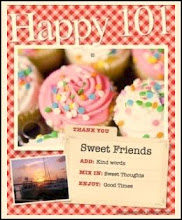 This is not a new idea, but it is one that not many people have heard of. Mom is hoping to spread the word about precycling because it is probably the best way to eliminate trash. Recycling is great, but it hasn't made a difference in the waste that ends up in landfills due to over-consumption and excess packaging. It still takes energy to transport items, melt them down, and re-manufacturer them. Why do this when it is unneccessary? It's time to precycle!
This is not a new idea, but it is one that not many people have heard of. Mom is hoping to spread the word about precycling because it is probably the best way to eliminate trash. Recycling is great, but it hasn't made a difference in the waste that ends up in landfills due to over-consumption and excess packaging. It still takes energy to transport items, melt them down, and re-manufacturer them. Why do this when it is unneccessary? It's time to precycle!So what is precycling? Precycling is the act of reducing waste by not bringing items home that will generate waste. You "pre-think" your purchases so that you don't have things to throw away. There are so many things that cannot be recycled, such as packaging materials, so if you don't buy items that are heavily packaged, you will not have as much to throw away. I know it sounds simple, but not a lot of people even think about it.
So how can you precycle? The first and most obvious idea is to take cloth bags with you when you shop. I'm not just talking about the grocery store, but everywhere you shop, like the drugstore and the mall. Another great place to precycle is at the produce section of the grocery store. Mom gets crazy when she sees people putting bananas in the plastic produce bags. What is the point of that? There is no need to put any produce in a plastic bag. Just lay it in your cart or basket and have it packed in your cloth bags when you check out. Most of the plastic produce bags don't even get recycled, which is a waste in and of itself, but by precycling - "pre-thinking" your purchase - you have less to dispose of. Buying in bulk is another way to precycle. This reduces packaging and in most cases saves money.
Styrofoam cannot be recycled and will be with us forever. Choose egg cartons which are made from recycled newsprint, never the styrofoam cartons. Avoiding products packaged in styrofoam is sometimes unavoidable, so limit these purchases so you will have less to dispose of.
Avoid single use items like disposable razors, pens, cleaning pads, foil pans, etc. There are so many single use items at the store that it seems almost unavoidable but it isn't. You must make a conscious decision to avoid them because there are alternatives available.
Choose items that can be easily recycled like #1 plastic. Some plastic containers are made from layer upon layer of plastic and these cannot easily be recycled. Avoid these whenever you can.
The ultimate goal is to reduce waste by avoiding it, thus not creating garbage, and this will in turn eliminate a need for these items. Until everyone stops using the produce bags, the grocery stores will continue to supply them. The same thing goes with the plastic grocery bags. Only when everyone starts to bring their own, will the stores stop using them.
Annie Leonard, whose short film "The Story of Stuff" documents how things are made from cradle (extraction) to grave (incineration), has spent over 20 years investigating factories and garbage dumps around the world. She says that it takes 70 cans of garbage to make the junk that goes into just one can of trash. If that isn't proof enough to make you precycle I don't know what will.
Packaging is the biggest culprit of waste. In order to minimize waste and maximize resources, manufacturers must use products that can easily and safely be broken down. Mom finds it very hard to buy baked goods because of the packaging (not to mention all the chemicals). She knows that cookies must be carefully packaged so that they survive transport and shelving intact, but all that stuff is wasted when you eat the cookies. It is much easier, cheaper, healthier, and better for the environment to bake your own.
If people start making conscious decisions about what they buy - precycling - this will send a message to manufacturers that consumers demand responsible products and packaging, and that this is good for business. The idea is that our positive behavior will change their behavior and that we will ultimately have less waste.
Precycling emphasizes reducing and reusing, and by carefully precycling, we can make the connection between what we consume and our environment. Even small changes make a big difference, so please think before you buy - precycle!









No comments:
Post a Comment